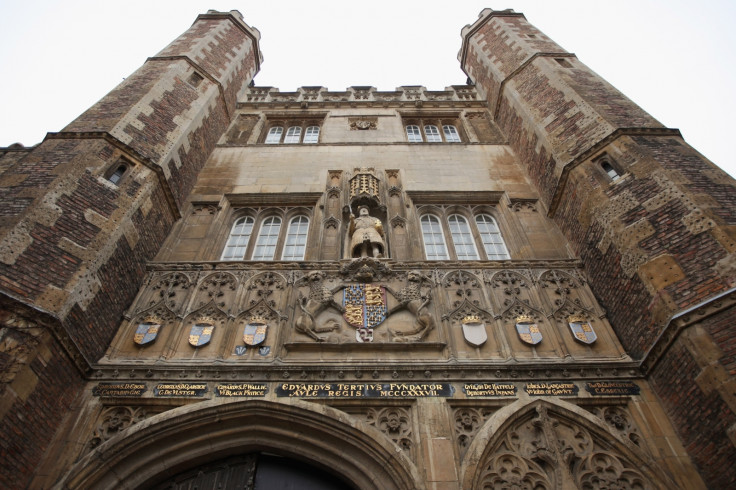Cambridge University receives 173 sexual misconduct complaints in 9 months
KEY POINTS
- The majority (119) of complaints were by students against other students.
- University says it views the numbers "as a metric of success" for its online sexual misconduct reporting tool.
Cambridge University has acknowledged a "significant" sexual misconduct problem after it received 173 anonymous complaints in nine months.
The university launched an online reporting system in May 2017 and has since received 119 complaints from students against other students, two by students against staff, and seven by staff against colleagues. The rest involved neither staff nor students, and some of the complaints were regarding historic misconduct.
Cambridge University's pro-vice-chancellor for education, Graham Virgo, said the university sees the number of reports "as a metric of success", and that the high number was expected due to the anonymity of the reporting system.
Both the victim and the perpetrator remain anonymous in the reporting system. The website hosting the form provides links to available support and information on how to make an official complaint.
"Anonymous reporting can help survivors' voices be heard without their rawest experiences being made public in any way," Virgo wrote in The Conversation, an academic news website. "It gives them a voice in a way that is free of the fear of consequences, but also free from accusations that complaints are vexatious as neither perpetrator nor victim can be named. For some, this may be sufficient. For others, they may want action to be taken."
The reporting system is part of a wider effort to identify and address sexual misconduct at Cambridge. In September 2017, the university advertised for a sexual assault and harassment adviser role and in October launched its "Breaking the Silence" awareness-raising campaign.
Virgo said that before the campaign was launched, 52% of those reporting an incident thought their complaint would come to nothing. This has now dropped to 30%.
Emma Chapman, a member of the 1752 campaign group set up to address staff-student sexual harassment in higher education, said the figures showed that students do not trust official reporting procedures at universities.
Chapman told The Guardian, "We know that many students across the UK do not have faith in official disciplinary processes within their institutions, finding them to be inadequate and discriminatory.
"Anonymous reporting that does not lead to the same neutral investigation as with third or first party complaints will not lead to individual disciplinary action, nor is it clear how it will lead to the culture change necessary to make the university a safer place for students."
"Through the anonymous reporting tool, we now have a large number of Cambridge voices who have reported the issues they've faced," Virgo said. "It supports our belief that we have a significant problem involving sexual misconduct - what we now need to ensure is that those who have been affected receive the support and guidance they need.
"Clearly, there is work still to do, but the campaign's message that those who report will be supported and action can be taken is starting to have an impact."




















